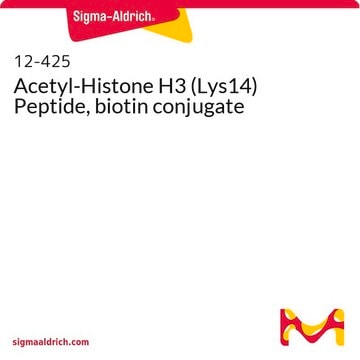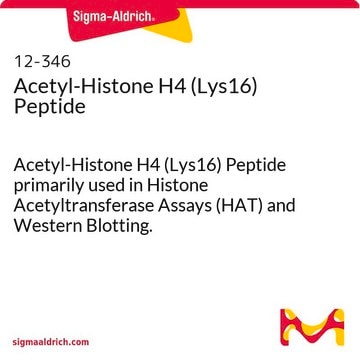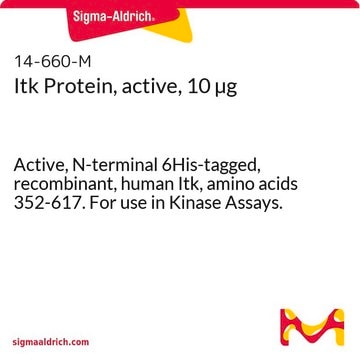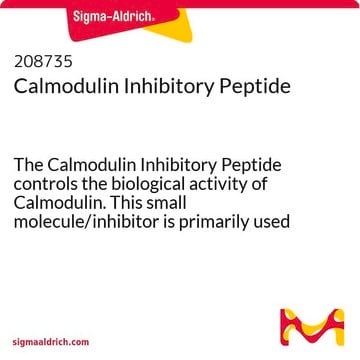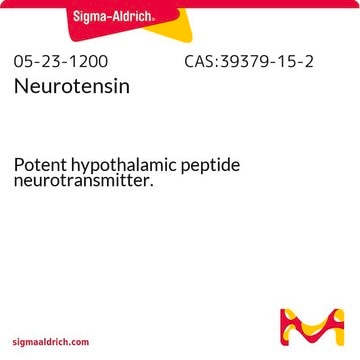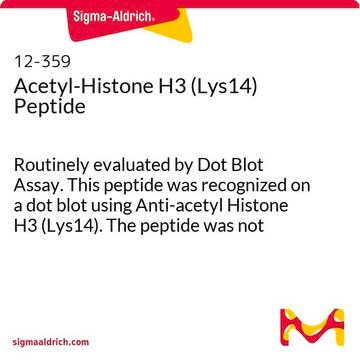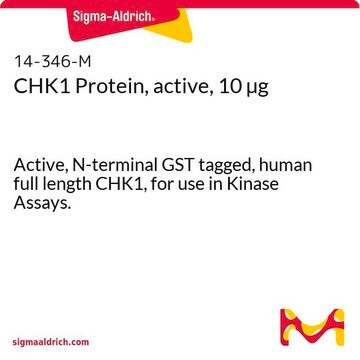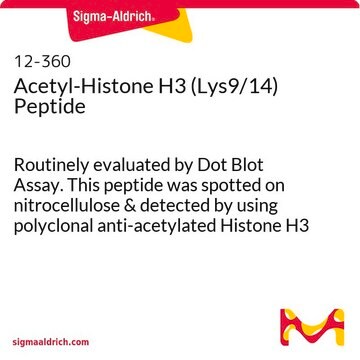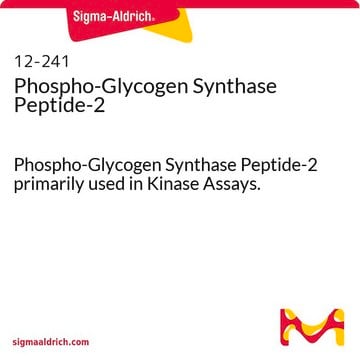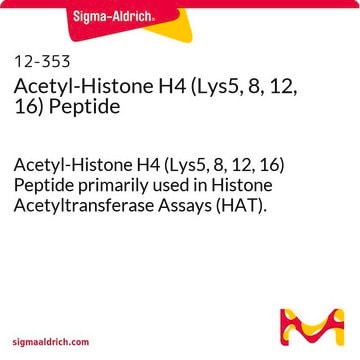12-343
Acetyl-Histone H4 (Lys5) Peptide
Acetyl-Histone H4 (Lys5) Peptide primarily used in Histone Acetyltransferase Assays (HAT).
Sign Into View Organizational & Contract Pricing
All Photos(1)
About This Item
UNSPSC Code:
12352202
eCl@ss:
32160405
NACRES:
NA.42
Recommended Products
Quality Level
form
liquid
manufacturer/tradename
Upstate®
technique(s)
activity assay: suitable (histone acetyltransferase (HAT))
NCBI accession no.
UniProt accession no.
shipped in
dry ice
Quality
Routinely evaluated by Immunoblot Analysis as a standard for antibodies specific for acetylation of lysine 5 of histone H4.
Physical form
sterile deionized water
Storage and Stability
2 years at -20°C
Legal Information
UPSTATE is a registered trademark of Merck KGaA, Darmstadt, Germany
Disclaimer
Unless otherwise stated in our catalog or other company documentation accompanying the product(s), our products are intended for research use only and are not to be used for any other purpose, which includes but is not limited to, unauthorized commercial uses, in vitro diagnostic uses, ex vivo or in vivo therapeutic uses or any type of consumption or application to humans or animals.
Storage Class Code
12 - Non Combustible Liquids
WGK
nwg
Flash Point(F)
Not applicable
Flash Point(C)
Not applicable
Certificates of Analysis (COA)
Search for Certificates of Analysis (COA) by entering the products Lot/Batch Number. Lot and Batch Numbers can be found on a product’s label following the words ‘Lot’ or ‘Batch’.
Already Own This Product?
Find documentation for the products that you have recently purchased in the Document Library.
The malate-aspartate NADH shuttle member Aralar1 determines glucose metabolic fate, mitochondrial activity, and insulin secretion in beta cells.
Blanca Rubi,Araceli del Arco,Clarissa Bartley,Jorgina Satrustegui,Pierre Maechler
The Journal of Biological Chemistry null
Mutagenic effects of niridazole in animal-mediated and in liquid suspension assays using Escherichia coli K-12 as an indicator.
S Knasmuller,A Szakmary
Mutation Research null
C A Mizzen et al.
Cell, 87(7), 1261-1270 (1996-12-27)
The transcription initiation factor TFIID is a multimeric protein complex composed of TATA box-binding protein (TBP) and many TBP-associated factors (TAF(II)s). TAF(II)s are important cofactors that mediate activated transcription by providing interaction sites for distinct activators. Here, we present evidence
Our team of scientists has experience in all areas of research including Life Science, Material Science, Chemical Synthesis, Chromatography, Analytical and many others.
Contact Technical Service